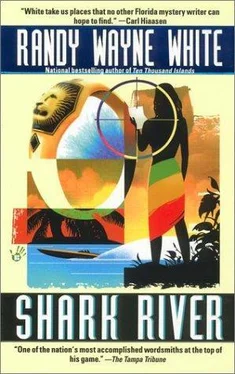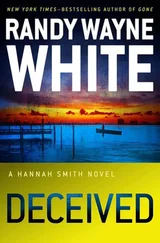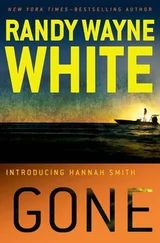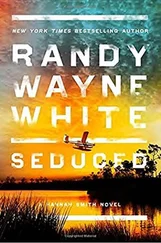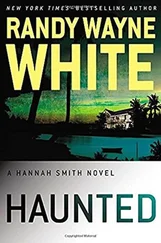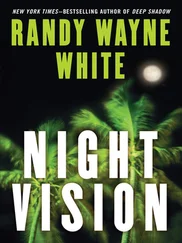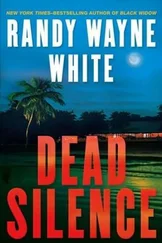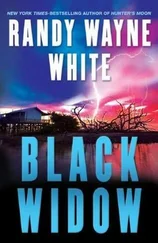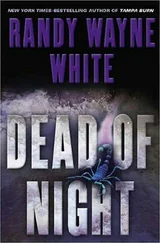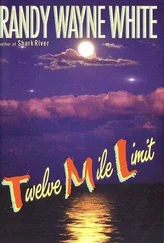Randy White - Shark River
Здесь есть возможность читать онлайн «Randy White - Shark River» весь текст электронной книги совершенно бесплатно (целиком полную версию без сокращений). В некоторых случаях можно слушать аудио, скачать через торрент в формате fb2 и присутствует краткое содержание. Жанр: Триллер, на английском языке. Описание произведения, (предисловие) а так же отзывы посетителей доступны на портале библиотеки ЛибКат.
- Название:Shark River
- Автор:
- Жанр:
- Год:неизвестен
- ISBN:нет данных
- Рейтинг книги:3 / 5. Голосов: 1
-
Избранное:Добавить в избранное
- Отзывы:
-
Ваша оценка:
- 60
- 1
- 2
- 3
- 4
- 5
Shark River: краткое содержание, описание и аннотация
Предлагаем к чтению аннотацию, описание, краткое содержание или предисловие (зависит от того, что написал сам автор книги «Shark River»). Если вы не нашли необходимую информацию о книге — напишите в комментариях, мы постараемся отыскать её.
Shark River — читать онлайн бесплатно полную книгу (весь текст) целиком
Ниже представлен текст книги, разбитый по страницам. Система сохранения места последней прочитанной страницы, позволяет с удобством читать онлайн бесплатно книгу «Shark River», без необходимости каждый раз заново искать на чём Вы остановились. Поставьте закладку, и сможете в любой момент перейти на страницу, на которой закончили чтение.
Интервал:
Закладка:
“I’m very glad I came to find you, my brother. The thing that surprises me, though, is you be so very stubborn.”
I sighed, held my hand up-we needed to stop talking while I did my work. Behind us, I could see that the catch bags at the end of the otter trawls were already engorged, which meant that she and Tomlinson had to help.
I said, “Time to bring in the nets.”
I shut down the engine, and used my right hand to crank in one otter trawl while Tomlinson cranked in the other. The nets were each eighteen feet long; woven funnels with heavy wooden doors at the mouth to keep the nets open, galvanized chain on the bottom to keep them down, plus rolling sea grass guards so they wouldn’t tear up the grassbeds. The rig was designed to shepherd everything in the boat’s path to the rear of the net, an expandable ball that was kept closed by a simple knot.
As I cranked, I listened to the steel cable creak with the weight of resistance, and watched the pod at the end of the net trail in and grow larger. Once I had the release-sack winched into the air, I reached up and, by hand, swung the boom over the boat. It hung there like a giant balloon, pouring seawater onto the deck, a hundred pounds or more of croaking, clicking, squeaking, popping sea life.
Anyone who says that the underwater world is silent has never been underwater.
As many times as I’ve hauled in trawl nets, I’ve yet to lose the feeling of anticipation and expectation before dumping that first strike from new bottom. You never know what might be inside.
I told Tomlinson, “Leave your net in the water. We don’t want to kill anything. We’ll cull mine, then yours.”
I pulled the string, and out gushed a wriggling, scampering mass of living protein. There were hundreds of fish, dozens of species: grunts, pinfish, flukes, cowfish, file fish, immature sea trout, croakers, gray snapper, lane snapper, thread herrings, immature female groupers, skipjacks, box fish, and southern puffers, the last two making rapid-fire inhalations as they inflated their bodies like miniature footballs. There were blue crabs and calico crabs, arrow crabs and hermit crabs. There were shrimp and sea horses, sea urchins, hydroids, and stingrays all buried among grass and gumbo that smelled of iodine and fresh sea bottom, which is one of the most delicate and compelling odors I know.
Ransom commented on how much we’d hauled in-“Man, I didn’t know that many kinds of things lived down there!”-then surprised me by adding, “What we got right there, them sea urchins, man, they something sweet to eat.”
I was rigging a tarp to protect our catch from the sun. Along the transom, made of PVC, was a raw water sprinkler to keep everything wet and cool. I said, “Help yourself, but you need to eat while you help me chart. We want to get everything back in the water as fast as we can.”
I’d already familiarized her with the four clipboards I had hanging in the wheelhouse. On each was a paper on which were listed many dozens of species by their common names. As Tomlinson and I called out animals and released them, she was to make a mark in the appropriate box.
I watched her grab a salmon-colored spiny urchin, crack the bottom with a knife, and scoop out the golden eggs. “Ummm, man, we shoulda brought a lime with us. Lime and sea urchin, that a very nice thing. A cool beer to drink, that make it better.”
I said, “If you want, we’ll put a few in the live well. You can eat them later.”
“Can we keep a couple of them horse conchs, too?” she asked. “I slice it up and pound it tender, then fry it real hot. It more peppery tastin’ than the queen conchs, but it something good, man. Down on my island, the vitch people-the voodoo people, I’m talkin’ about. The vitch people, they say a man got trouble with his short leg, all he got to do is eat some fresh horse conch raw. That make him stand up strong. Like a stallion horse, you understand?”
Tomlinson said, “Short leg?”
Ransom had a busty, bawdy laugh. “The little god ’tween your legs I’m discussin’.”
Tomlinson stood motionless in thought for a moment, then I watched him bend and lift two mahogany-colored horse conchs out of the pile, turn, and place them elbow deep in the wells of aerated seawater where I store animals I need to transport alive.
He dried his hands on his paisley surfer shorts, saying, “Sounds delicious.”
Speaking rapidly to Ransom as I dropped fish overboard, I said, “That makes five… six… seven French grunts… yeah, that’s all of them. So now we’ll start on file fish and sea horses. There might be a couple of pipe fish in there, too. That should be.. . Clipboard C. Ready?”
She was looking at the chart. “No, man, no, you wrong, that make nine French grunts. You miscounted, plus there’s one right there by Mr. Thomas’ knee. I can see the tail.”
Tomlinson and I were down on the deck, using our hands to cull through the thigh-high piles of grass and clumps of tunicates, searching for more life. My left arm was feeling pretty good. The more I used it, the better it felt.
“She’s right,” said Tomlinson as he held up the candy-colored fish. He slid it back into the water and watched it swim away. “Nine French grunts it is.”
I told her, “Good job, way to keep track. Tell us when you’re ready for the sea horses. That’ll leave the tunicates and the soft sponges, then we’re finished for the day.”
Not finished with the survey-my contract called for three seasonal replicates, all to be done with cast net and otter trawls like the two I was using. I refuse to use threepanneled trammel nets anymore because they are too deadly, too destructive and there’s too much chance of them being lost, sinking and killing fish for years afterward.
Over the years, I’ve refined my own survey technique: Count the number of fish and the number of species from several specific habitats around an island-I’d already documented 237 different species around Guava Key. Calculate respective totals. Then use aerial photos to measure the various acres of habitat in the adjoining water space, and multiply acreage by the number and species of animals found in similar areas.
Much of it is subjective judgment. You have to make considerations for mechanical biases: The size of net mesh, the speed of the boat. For instance, my slow trawler with its large meshed net is never going to catch a mature tarpon nor a microscopic tarpon larva-but that doesn’t mean they don’t both live in the waters around Guava Key. They certainly do.
Once I consider all the data I’ve collected and match figures from other regions, it’s not difficult to make an objective summary about the health of a body of water and its sea bottom.
From everything I’d seen over the last week, the bays around Guava Key were still healthy enough to be productive, but there were some danger signs. The water seemed unusually murky for February-it had a green turbidity, not the tannin-amber color normally associated with mangrove back country.
Curious, I’d checked the local telephone book. There were more than a hundred public and private golf courses listed in the county that adjoined the bay. My Florida atlas was more specific: Of those one hundred courses, more than a dozen of them were boundaried by brackish water rivers and creeks that flowed directly into the bay.
I’d thought the numbers must have been a misprint until I called several fellow biologists around the state. It turned out that most coastal counties in Florida have at least that many courses, and some of the bigger, tourism-driven counties have far more.
Nothing against golf. I’ve played enough to appreciate the artistry of a well-designed course, and I wish I had the coordination to be good at the game. I also agree that golf courses are correctly considered green space preserve areas by state planners-but the problem is, what does it take to keep them green?
Читать дальшеИнтервал:
Закладка:
Похожие книги на «Shark River»
Представляем Вашему вниманию похожие книги на «Shark River» списком для выбора. Мы отобрали схожую по названию и смыслу литературу в надежде предоставить читателям больше вариантов отыскать новые, интересные, ещё непрочитанные произведения.
Обсуждение, отзывы о книге «Shark River» и просто собственные мнения читателей. Оставьте ваши комментарии, напишите, что Вы думаете о произведении, его смысле или главных героях. Укажите что конкретно понравилось, а что нет, и почему Вы так считаете.
